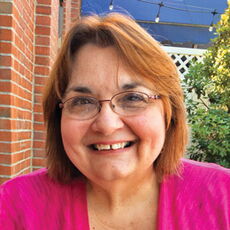
How to predict a salesperson’s success by understanding their buyer personality
Your salespeople's buying habits predict how they will sell.

To sell successfully, they need to look beyond their personal preferences and get into the minds of their customers.
Buyer types
There are four buyer personalities: The analytical types, the ones who buy with emotion, the “I need to be in control” types and the “decision by committee” buyer.
A salesperson must approach each buyer type differently.
What is your salesperson’s buyer type? Your salesperson’s buyer personality typically mirrors their approach to potential customers.
To figure out their buyer type, ask them to describe a large recent purchase, such as a new car, a home, or a vacation. Then ask about their decision-making process.
Analytical buyers
Did they do extensive research? This salesperson is an analytical buyer. Analytical buyers employ logic and want all the information you can provide about your products, services and company.
As salespeople they are armed with a sales kit full of data, reviews, testimonials, and charts. They will stay on top of the customer’s decision-making process and provide prompt responses to requests for information.
This is good, IF the customer is an analytical buyer. However, your analytical salesperson may need guidance on how to establish connections with emotional buyers, present options to controlling buyers, and deal with a committee buyer’s consensus approach. Your guidance helps them avoid projecting their own analytical bias onto customers.
Emotional buyers
If your salesperson’s purchase was more impulsive or ego-driven, they will connect with emotional buyers. A salesperson’s pre-existing relationship with a vendor contact is an important clue.
Emotional buyers like to deal with people they know, such as friends and relatives. Emotional buyers likewise want to relate to their salesperson. Once they establish a personal connection, they are loyal.
Although relationships are important in sales, your emotional salesperson still needs to provide information and options to analytical and control buyers. They need to work to create relationships with a committee buyer’s influencers, inviting collaborators into the conversation.
Controlling buyers
Controlling buyers are often leaders, motivated by power and respect; they are keenly aware that their purchases affect others. They thrive on control and respond to options and negotiation. If your salesperson makes large purchases independently, without soliciting outside opinions, they are control buyers.
A controlling salesperson may cause friction by trying to dominate the decision-making process. Instead, they must honor the customer’s need for options, customization and control.
Committee buyers
Committee buyers often seek buy-in from a number of people in the organization. If a salesperson seeks advice from friends and family before deciding to buy, they will be tolerant of a fellow committee buyer. This may delay closing the sale, and your salesperson can get lost in a fog of “maybe.”
Other clues. The salesperson’s buying behavior contains other clues predicting their ability to close a sale. If your salesperson took their time making that big purchase, they will be patient with customers who decide slowly. If they bought quickly, they may expect their customers to do the same. The quick buyer should set turnaround expectations accommodating analytical, control and committee buyers’ decision-making processes.
You should also ask your salesperson whether they had a specific budget in mind for the purchase. Did they stick to the budget, or spend more or less than planned? Ask why.
Some are bargain hunters and are always looking for a deal. Did they pay less by negotiating? Both are hallmarks of a control buyer. Or did they spend more than planned, because they saw more value in exceeding budget, and were excited to buy more features/benefits than they planned? That is an emotional buyer.
Salespeople stay in their comfort zones when discussing customer budgets. Analytics resist quoting over budget and may come to you for permission to discount. Others see the budget as a guideline, and want to sell value, not a price. Your salespeople need to look at the purchase from the customer’s perspective, not their own.
Final thoughts
If your salespeople understand their own buying habits, and recognize their buyer personality, they will be more successful. They will correct for their own biases and will be able to meet your customers where they are. This is a win for the salesperson, a win for the customer, and a win for your business.













0 Comments